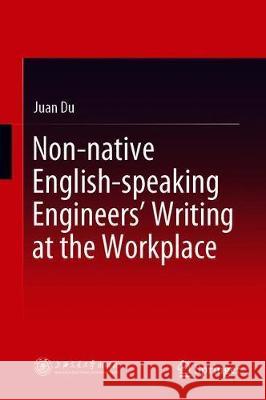Non-Native English-Speaking Engineers' Writing at the Workplace » książka
topmenu
Non-Native English-Speaking Engineers' Writing at the Workplace
ISBN-13: 9789811519826 / Angielski / Twarda / 2020 / 92 str.
Non-Native English-Speaking Engineers' Writing at the Workplace
ISBN-13: 9789811519826 / Angielski / Twarda / 2020 / 92 str.
cena 442,79
(netto: 421,70 VAT: 5%)
Najniższa cena z 30 dni: 424,07
(netto: 421,70 VAT: 5%)
Najniższa cena z 30 dni: 424,07
Termin realizacji zamówienia:
ok. 16-18 dni roboczych.
ok. 16-18 dni roboczych.
Darmowa dostawa!
Kategorie:
Kategorie BISAC:
Wydawca:
Springer
Język:
Angielski
ISBN-13:
9789811519826
Rok wydania:
2020
Wydanie:
2020
Ilość stron:
92
Waga:
0.32 kg
Wymiary:
23.39 x 15.6 x 0.79
Oprawa:
Twarda
Wolumenów:
01
Dodatkowe informacje:
Wydanie ilustrowane











